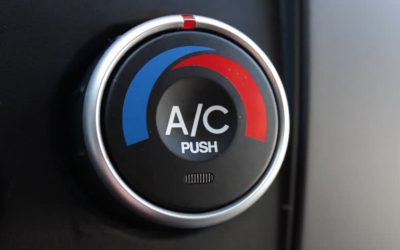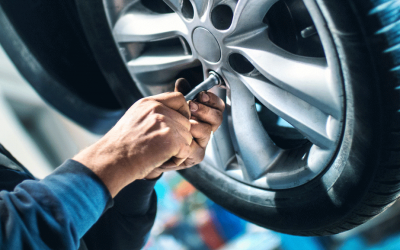A Quick Guide to Checking the Oil Levels in Your Car
Avoid the warning light with our DIY guide to checking your engine’s oil, topping up and keep your car running smoothly
Why It’s Important to Check Your Car’s Oil
As responsible motorists, it’s crucial to ensure our vehicles are properly maintained to keep them running smoothly, efficiently and safely. One essential aspect of car maintenance is regularly checking the oil levels. In this post, we will guide you through the process of checking your car’s oil level, shed light on how often this should be done and tell you what’s involved in an oil change. So, let’s dive in!
Checking the Oil Levels in Your Car:
Step 1: Park on Level Ground
Ensure your vehicle is parked on a level surface to obtain an accurate reading. This will prevent any false readings caused by an uneven incline.
Step 2: Locate the Dipstick
Open the car’s bonnet (hood) and locate the dipstick. It is usually situated near the engine and has a brightly coloured handle, often yellow or orange, making it easily identifiable.
Step 3: Pull Out and Wipe the Dipstick
Carefully pull out the dipstick and wipe it clean with a lint-free cloth or paper towel. This step ensures an accurate reading, as any residual oil on the dipstick may lead to an incorrect measurement.
Step 4: Reinsert the Dipstick
Gently insert the dipstick back into its tube, ensuring it is fully seated. Make sure not to force it in or leave it loose.
Step 5: Pull Out and Check the Oil Level
Once again, pull out the dipstick and observe the oil level. Typically, there are two marks on the dipstick—an upper and a lower mark. The oil level should ideally be between these two marks. If it falls below the lower mark, it’s time for an oil change.
How Often Should You Check the Oil Level?
Regularly monitoring your car’s oil level is crucial to maintain its performance and longevity. As a general guideline, it is recommended to check the oil level at least once a month or before embarking on long journeys. However, for older vehicles or those with high mileage, it is advisable to check it more frequently, such as every two weeks. Additionally, keep an eye on your car’s manufacturer guidelines, as they may provide specific recommendations for your vehicle model.
The Importance of Regular Oil Changes:
In addition to checking the oil level, it’s essential to understand the significance of regular oil changes. Over time, engine oil becomes contaminated with dirt, debris, and other contaminants, which can affect its lubricating properties. Regular oil changes help maintain engine health, improve fuel efficiency, reduce wear and tear and prevent potentially expensive repairs down the line.
FAQs:
How often is my car due an oil change?
While the frequency may vary depending on the vehicle and driving conditions, a general recommendation is to change the oil every 3,000 to 5,000 miles or as per your car manufacturer’s guidelines. Consult your owner’s manual for specific instructions.
Can I use any type of oil for my car?
It’s important to use the oil recommended by your car manufacturer. Different vehicles require specific types of oil, such as synthetic or mineral oil, with certain viscosity grades. Using the wrong type of oil in an oil change can negatively impact your car’s performance and potentially void your warranty.
What are the signs that my car needs an oil change?
Several indicators may suggest that your car needs an oil change. These include low oil level, dark and dirty oil, engine noise, reduced fuel efficiency, or the illuminated oil change light on your dashboard. If you notice any of these signs, it’s time to schedule an oil change.
Can I check the oil level when the engine is hot?
It’s generally recommended to check the oil level when the engine is cold or has been turned off for a few minutes. This allows the oil to settle back into the oil pan, providing a more accurate reading. Checking the oil level when the engine is hot can lead to inaccurate readings.
Can I top up the oil if it’s below the recommended level?
Yes, if your car’s oil level falls below the recommended range, you can add oil to bring it back to the proper level. Use the type of oil specified by your car manufacturer and add it gradually, checking the level frequently to avoid overfilling.
Is it necessary to change the oil filter with every oil change?
Yes, it is highly recommended to change the oil filter when performing an oil change. The oil filter helps remove contaminants and debris from the oil, ensuring the engine stays clean and well-lubricated. A fresh oil filter helps maintain optimal engine performance and longevity. The condition of your oil filter will form part of any reputable car service.
Book an Oil Check in Basingstoke
Remember, if you have any specific concerns or questions regarding your car’s oil change or maintenance, it’s always best to consult with a professional mechanic or contact TLC Autocentres in Basingstoke for expert advice tailored to your vehicle’s needs.
Now that you have learned how to check your British car’s oil level and understand the importance of regular oil changes, it’s time to take action! Visit TLC Autocentres in Basingstoke, your trusted automotive experts. Our professional technicians will ensure your vehicle receives the TLC it deserves. Whether you need an oil change, routine maintenance, or any other automotive service, we’ve got you covered.
Maintain your car’s performance and extend its lifespan with TLC Autocentres. Contact us today at 01234 567890 or click here to schedule an appointment. Experience top-notch service that leaves you worry-free on the road.
Remember, a well-maintained car is a happy car!
Disclaimer: The information provided in this blog post is intended for general guidance only. For specific instructions regarding your vehicle, always refer to the owner’s manual or consult a qualified mechanic.
Here are some more blog posts you might like
Why it’s important to look after your car tyres
Keep Your Car Rolling: The Importance of Tyre Maintenance Discover why it's crucial to look after your car tyres, including how to check them and what depth they should be Why Is Tyre Maintenance Crucial? As car owners, we all know how essential our vehicles are to...
The Importance of Your Car’s Air Conditioning System
Your car’s air conditioning system does a lot more than just keep you cool in the warmer months. In this post, we’ll explain why it’s crucial to keep your car’s air con in good working order.
TLC approved Repairers for WMS Vehicle Warranty Group
TLC approved Repairers for WMS Vehicle Warranty Group We're a preferred workshop for warranty repairs TLC have been appointed by the WMS Car Warranty Group, to be their preferred workshop for warranty repairs in the Basingstoke area. Find out why Click here The...



